A 35-year-old Dalit man, Somnath Suryawanshi, tragically died on December 15, a victim of alleged police brutality and custodial torture. The post-mortem report revealed the cause of death as “shock due to multiple injuries,” underscoring the horrific circumstances surrounding his demise. Suryawanshi had complained of chest pain on the morning of December 15, just a day after being transferred to judicial custody following two days in police detention. His death has sparked a wave of protests across Parbhani and Maharashtra, fuelled further by the state’s inaction and failure to address the underlying injustices.
The entire tragedy at Parbhani, marked by violent police atrocities and custodial torture, was mitigated, in part, by the timely intervention of senior activists, their legal teams, and local journalists. As the combing operations began, Advocate Pavan Jhondhale and his colleagues swiftly made their way to the police station, where they encountered the terrified families of the victims, who were visibly cowering in fear. Advocate Jhondhale, speaking to SabrangIndia, recounted the chilling scene: “We could hear screams of pain coming from inside the locker room when we were at the police station after the combing operations.”
Advocate Jhondhale highlighted how the advocates were being stopped from meeting the victims. He stated“Following this, they visited the affected areas and made contact with the victims. On December 12, when the victims—seen as accused by the police—were brought to court, their injuries were unmistakable: bleeding, swollen limbs, and other visible signs of torture. The police’s behaviour at the Magistrates Court was hostile. They blocked the advocates from meeting the victims, erecting barricades to prevent communication. This occurred on December 12.”
Sharing how the victims of custodial torture, even after being presented to the court, could not express their pain and abuse that they were facing, Advocate Jhondhale said “Earlier, at the police station, the team had gathered details of the FIRs and the sections under which the victims had been booked. In FIR 590, 27 individuals had been arrested, while in FIR 591, 5 were detained. The advocates requested that the Magistrate ask the accused if they had any complaints about their treatment in police custody. However, out of sheer fear, the victims did not respond. The advocates urged the Magistrate to ask them again, as there were clear signs of injury.”
“When the Magistrate asked again, they still could not detail their treatment, out of intimidation,” Advocate Jhondhale explained. This led Advocate More, his colleague, to argue against extending the police remand due to the ill-treatment the victims had endured. Despite the compelling evidence, the court granted two more days of police custody.
Advocate Jhondhale stressed on how the conditions of the victims worsened during the next two days that they spent in police custody, “On December 14, the advocates appeared in court again, and by this time, the condition of those who had been arrested had significantly worsened. It was then that the Magistrate ordered the victims to be transferred to Magistrate Custody (MCR). On December 15, a Sunday, all of the victims, including Somnath Suryawanshi, were transferred to MCR. Later that evening, the heartbreaking news came that Somnath Suryawanshi had died.”
While dealing with the fact that Somnath Suryawanshi died due to custodial torture, the team of advocates was also tasked with ensuring that the truth of how Somnath died gets documented and fair procedure is followed. Advocate Jhondhale said “Arguably, had the police custody remand (PCR) not been extended so routinely, a life might not have been lost. The advocates, in their efforts to seek justice, were also directed to the Sessions Court. On the very day of Somnath Suryawanshi’s death, December 15, Advocate Jhondhale provided that they had urgently requested an In Camera post-mortem and forensic examination to be conducted on Suryawanshi not in Parbhani, but in Shambhajinagat (Aurangabad). To ensure this, the advocates had to take the issue of the alleged death in police custody directly to the District Collector at her residential quarters on Sunday evening. They presented the guidelines and cited a Supreme Court judgment to support their demand. As a result of their persistent efforts, the transfer was finally ordered.”
Speaking to the SabrangIndia team, Advocate Pavan Jhondhale was categorical that it was this proactiveness that mitigated what could have turned out to be a far worse situation on the ground. His timely intervention, alongside the efforts of his colleagues and the local community, played a crucial role in addressing the police atrocities and ensuring that the victims’ suffering did not go unnoticed. Without this vigilance and persistence, the situation could have spiraled into something even more tragic.
Notably it was the combined legal and activist efforts of Pavan Jhondhale, Vijay Kale, Mahendra More, Imtiaz Khan, Vishwanath Anbhure, Vijay Sable that ensured some semblance of return to rule of law, in Parbhani post December 10, 2024.
Demands for a judicial inquiry have been made by the local affected population since December 17. In addition to the violent crackdown, several of those who reportedly are either residents of Parbhani or those who were peaceful protesting the desecration of the Constitution on December 10 were arrested on false charges. Among those arrested was Somnath Suryawanshi who succumbed to injuries allegedly inflicted in police custody after he had moved to judicial custody. Speaking to Sabrangindia on the status of the Ambedkarite protestors arrested on charges of rioting, advocate and activist, Rahul Pradhan Pradhan revealed that 26 individuals had been granted bail by the Sessions Court on December 18 and were expected to be released soon. However, five accused remain in jail, though none of them are women or minors.
न्यायासाठी आंदोलन थांबलेले नाही.
परभणी येथे आजपासून “न्याय आंदोलन” सुरू झाले असून परभणीतील सर्व आंबेडकरी समाज पक्षभेद, मतभेद सोडून साखळी आंदोलन करत आहे.मी ही स्वतः आज या आंदोलनात सहभागी झालो. जो पर्यंत मुख्यमंत्री फडणवीस दोषी पोलिसांवर खुनाचे गुन्हे दाखल करणार नाहीत, तोपर्यंत… pic.twitter.com/oXhhYGt0vt
— Rahul Pradhan – राहूल प्रधान (@RahulPradhan84) December 19, 2024
Opposition protests, growing public discontent with the state government
The custodial death and the sarpanch’s murder became focal points for the opposition during the winter session of the Maharashtra legislature. Members of the Maha Vikas Aghadi (MVA), including the Congress, Shiv Sena (UBT), and NCP, staged a walkout accusing the government of neglecting law and order. Congress leader Nitin Raut criticised the police and the administration, stating, “The interim medical report confirms police brutality. This is a gross failure of governance, and the government must act immediately to ensure justice.”
सोमनाथ सूर्यवंशीचा पोलीस कोठडीतील मृत्यू अमानुष मारहाणीमुळेच
कायद्याचा विद्यार्थी असलेल्या सोमनाथ सूर्यवंशीची कस्टडी डेथ पोलिसांनी केलेल्या अमाणूष मारहाणीमुळेच झाली. त्यामुळे सूर्यवंशीच्या मृत्यूला जबाबदार असणाऱ्या पोलिसांवर तातडीने गुन्हा दाखल करण्याची मागणी आज सभागृहात केली.… pic.twitter.com/a3wsZzZiD8
— Dr. Nitin Raut 🇮🇳 (@NitinRaut_INC) December 18, 2024
Speaking in the Assembly, Raut raised the issue of brutality against Dali women by male officers as well. He also took to social media and stated “After the desecration of the Constitution in Parbhani, the police administration took the precautions that should have been taken while this was happening. The police have lathi-charged Buddhists, Bhim Sainiks and those protecting the Constitution. The police have beaten up the mother of a one-and-a-half-month-old child in her house. All this is an outrage. The government demanded in the House to immediately register a case against the guilty police officers and take action.”
परभणीत संविधान विटंबना झाली यानंतर जो काय प्रकार घडला, हे प्रकार घडत असताना पोलीस प्रशासनाने जी दक्षता घ्यायला पाहिजे होती ती घेण्यात आली. बौद्ध लोकांना, भीमसैनिकांना आणि संविधानाचे रक्षण करणाऱ्यांवर पोलिसांनी लाठीचार्ज केला आहे. सव्वा महिन्याच्या मुलाच्या आईला घरात पोलिसांनी… pic.twitter.com/tVkzce2xwT
— Dr. Nitin Raut 🇮🇳 (@NitinRaut_INC) December 19, 2024
Shiv Sena (UBT) leader Ambadas Danve expressed similar concerns, emphasising that the right to protest was being suppressed under the current regime. Congress MLA Nana Patole argued that the government’s mismanagement of the Parbhani violence and the Beed murder had heightened tensions across the state. Speaker Rahul Narwekar, however, rejected an adjournment motion to discuss these issues immediately, stating that the matter would be taken up later, leading to further outrage among opposition members.
The dual tragedies have led to mounting public anger, with activists, residents, and political leaders demanding accountability. In Parbhani, local residents staged protests alleging that the police crackdown disproportionately targeted Dalit communities. In Beed, Maratha leaders accused the administration of failing to address growing caste tensions.
Activists have raised contentions that the incidents highlight systemic flaws in governance, including police overreach, caste discrimination, and ineffective conflict resolution mechanisms. Opposition parties have called for judicial inquiries into both cases and immediate reforms to prevent such incidents in the future.
Protests and police brutality
The backdrop of these protests lies in the desecration of the Constitution on December 10, an incident that initially led to peaceful demonstrations by Ambedkarite groups. However, according to reports of eye-witnesses from the ground, these protests escalated into violence—an outcome many believe stemmed from law enforcement’s deliberate inaction. Advocate and activist Rahul Pradhan, who has been on the ground in Parbhani since the incident, told SabrangIndia that the narrative pushed by the police does not reflect the truth. According to Pradhan, the Ambedkarite protests were entirely peaceful and concluded amicably after discussions between protest leaders—including activists Vijay Wakode, Sudhir Salve, and Ravi Kamble—and the police. He emphasised that the violence that later unfolded was not instigated by Ambedkarites but by unknown outsiders who engaged in arson, rioting, and stone pelting while the police stood by as passive onlookers.
Pradhan accused the police of enabling the violence, alleging that law enforcement allowed the hooligans to wreak havoc unchecked for hours. He noted that it wasn’t until the late evening of December 11 that the police began arresting individuals—but shockingly, their focus was on Ambedkarite activists who had peacefully protested rather than the actual perpetrators of the violence. “It seemed as if the police had an agenda, some instructions from above, and they were working according to it,” Pradhan stated.
The arrests of Ambedkarites were part of what Pradhan described as a targeted “combing operation” in Dalit and Buddhist-majority settlements. Such operations typically involve searching areas for individuals accused of cognisable offences, but in this case, the execution was brutal and indiscriminate. Pradhan and other activists recounted chilling accounts of police brutality during these raids, with men, women, and even children reportedly beaten savagely.
The horrors inflicted on these communities are deeply disturbing. Women were not spared, with male police officers allegedly assaulting them in particularly degrading and inhumane ways. Pradhan narrated the ordeal of a woman who had delivered a baby just a month prior—she was reportedly beaten without mercy. In another instance, police officers allegedly grabbed a woman by her hair, stood on her thighs, and struck her with sticks. Independent journalist Sharmistha Bhosale, who has been documenting the aftermath, shared harrowing images of the victims, corroborating these allegations of police excesses.
Rahul Pradhan’s accounts lay bare a grim reality: these raids were not about maintaining law and order but appeared to target Dalit and Buddhist communities in a manner that suggests systemic bias and state complicity. The violence unleashed by the police has left these communities traumatised, with many continuing to demand accountability and justice for the atrocities they endured. Suryawanshi’s death and the events that followed stand as a stark reminder of the deep-seated inequalities and institutional failures that plague the justice system in India. The outrage and protests sweeping Maharashtra are not just calls for justice for one man but a cry against the entrenched caste-based oppression and unchecked state violence that has gone on for far too long.
Sharmistha Bhosale, an independent journalist, also reporting from Parbhani, also shared her perspective with SabrangIndia, expressing deep anguish over the brutality inflicted upon the Dalit community, particularly women. “The way these people, especially the women, have been brutalised is beyond imagination. The targeted individuals are daily wage workers. Male police officers have, with impunity, used excessive force against Ambedkarites. Would male police inflict such gendered violence on women, even older women without the impunity born of political protection,” she asked. Sharmistha Bhosale shared exclusive photographs from Parbhani with Sabrangindia.
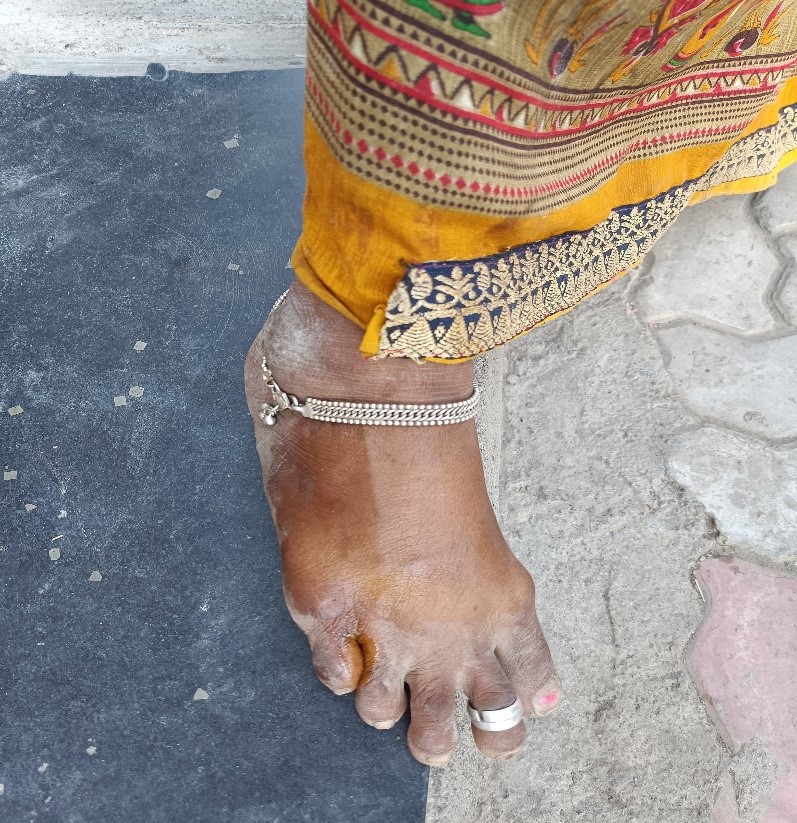
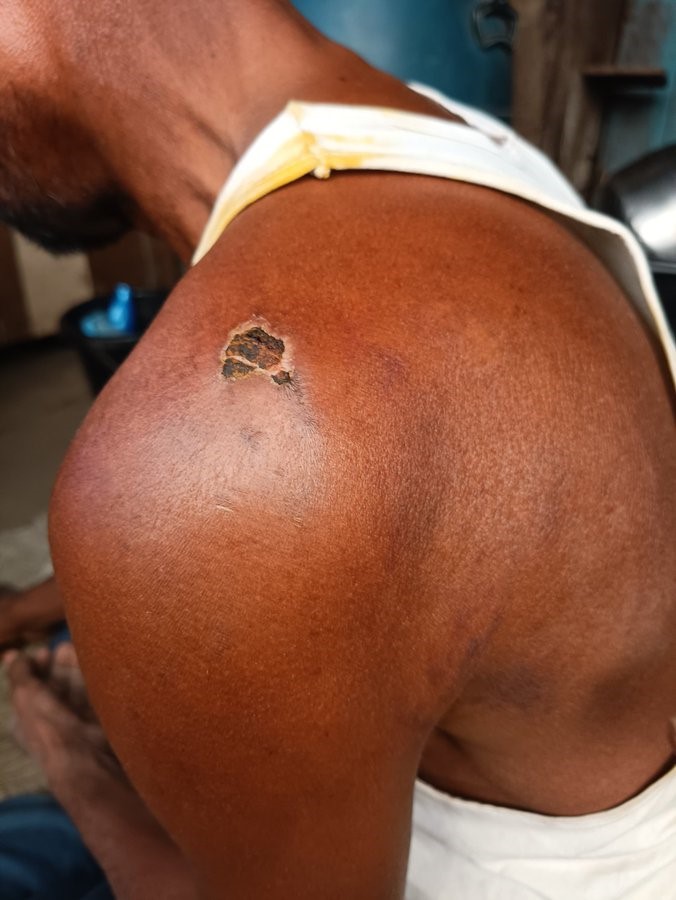
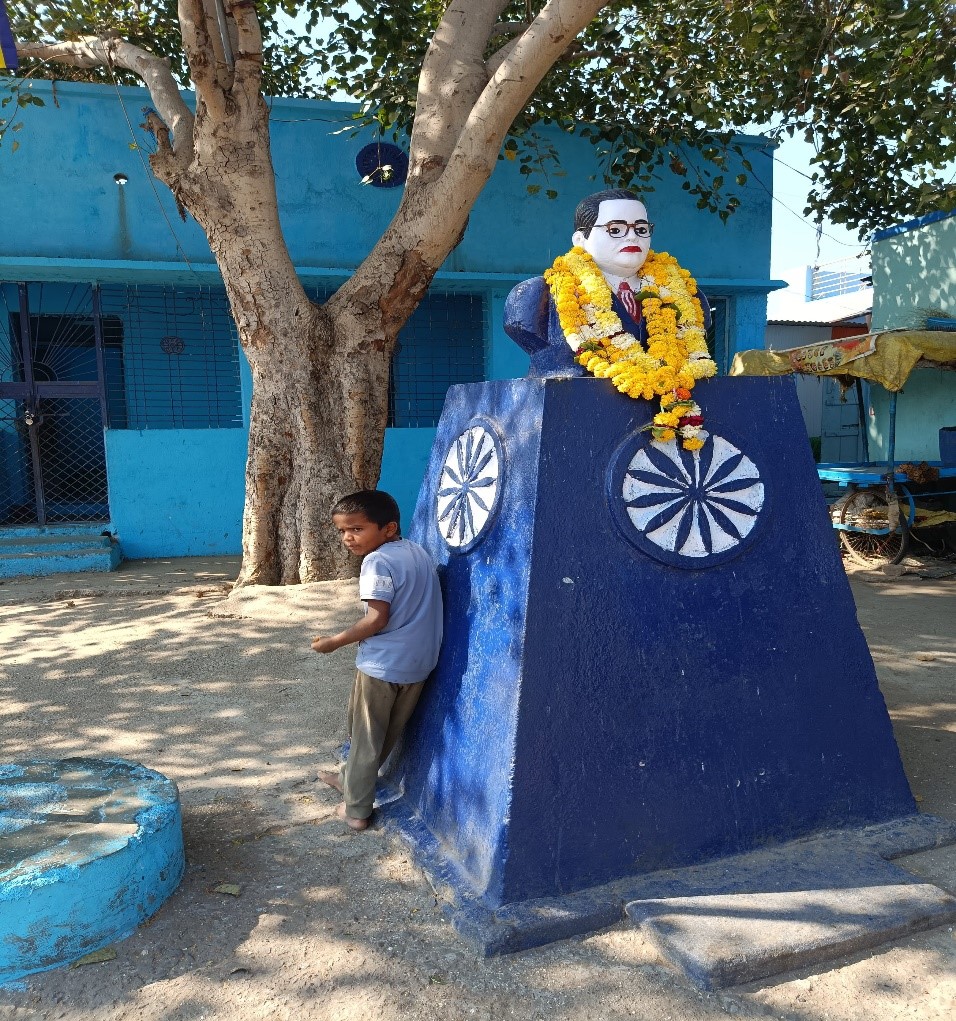
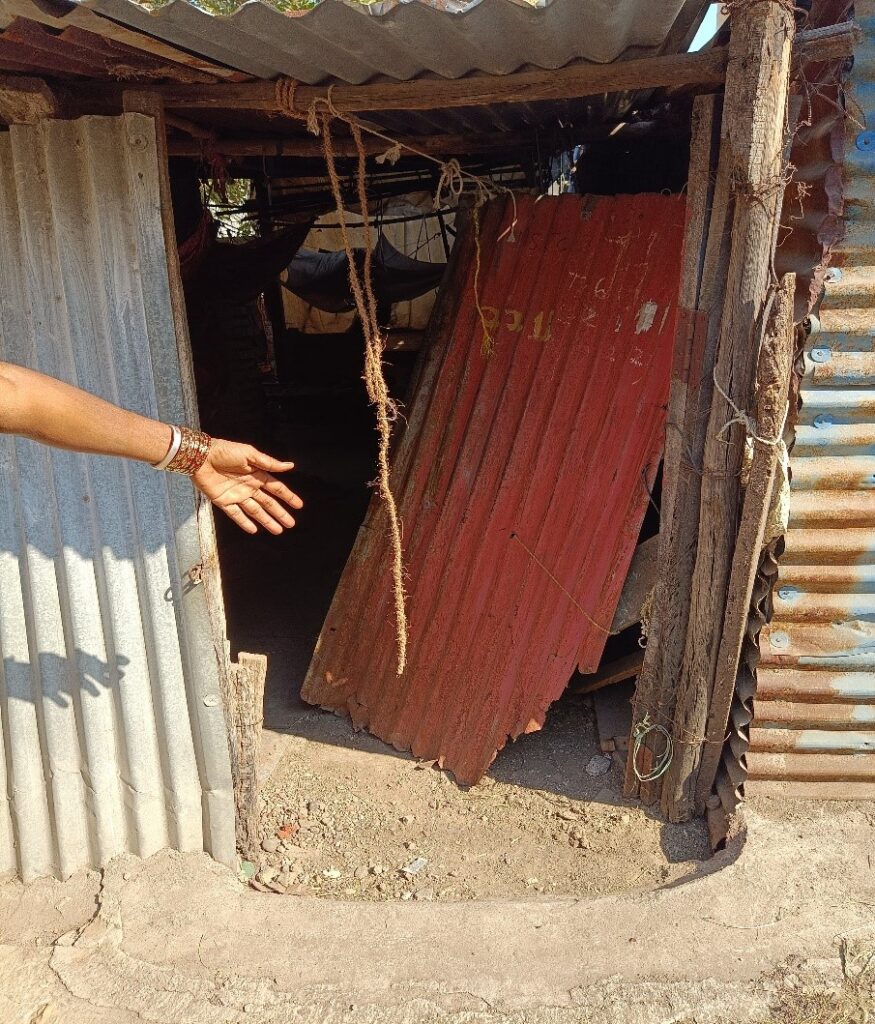
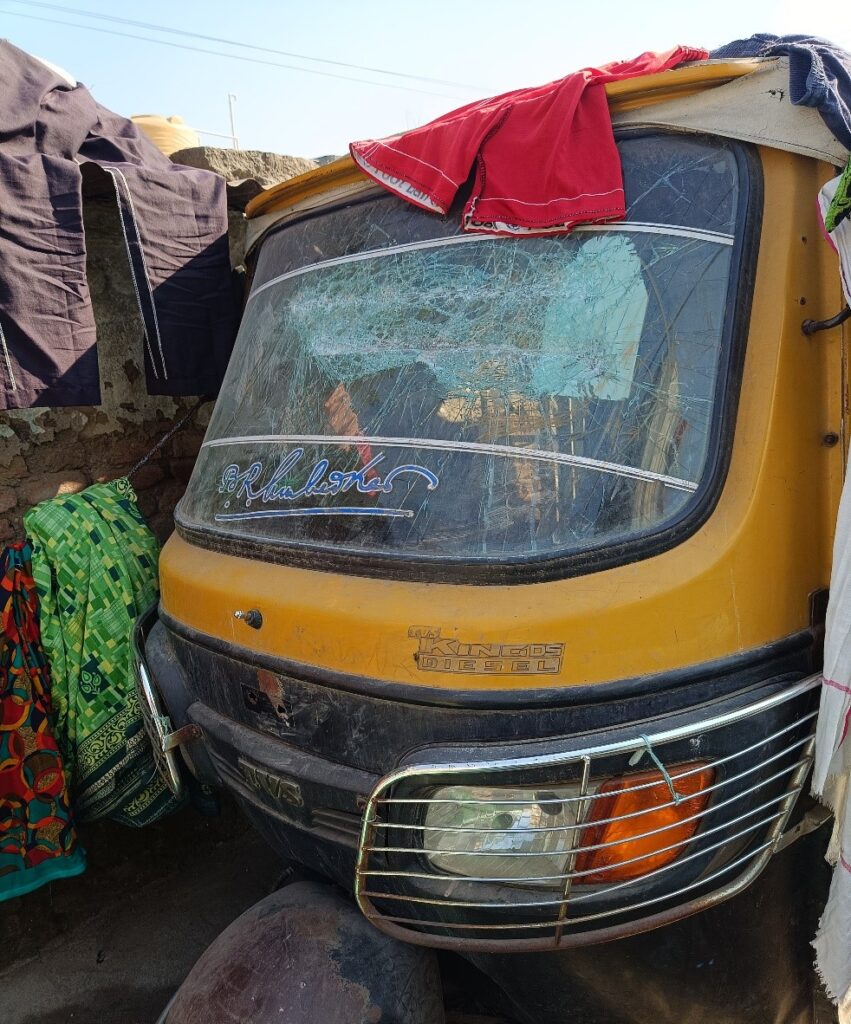
Advocate and activist Rahul Pradhan raised serious questions about the conduct of the police and their one-sided investigation into the Parbhani incident. According to Pradhan, the authorities are deliberately diverting attention away from the desecration of the Constitution, which initially triggered the protests. “Why have the police not checked the CCTV footage from the area where the desecration occurred? Did the perpetrator drop from heaven? Why is there no investigation against him?” he asked, pointing to glaring omissions in the police’s approach.
Pradhan also criticised the government for its inaction against the police officers involved. He argued that the absence of suspensions, transfers, or any punitive measures suggests tacit state support for the excessive use of force. “Even after the death of one Dalit man in custody and allegations of mass brutalisation, the government has taken no action against the police. If the state were not backing the excessive use of force against the marginalised, why would it stay quiet till now?” Pradhan remarked.
Pradhan, along with other activists, has demanded an independent judicial investigation into the entire series of events in Parbhani, beginning with the desecration of the Constitution and its underlying causes. He attributed the act of desecration to a climate of hate speeches prevalent in the area. Additionally, he called for the registration of an FIR against the erring police officers, including charges of custodial torture and murder in the case of Somnath Suryawanshi.
The demands for justice—ranging from a transparent investigation to accountability for the police—highlight the systemic flaws in how marginalised communities are treated by law enforcement and the state. The Parbhani incident is not merely a local tragedy but a reflection of a larger pattern of oppression and impunity that continues to plague India’s justice system.
“They took my son’s life” says deceased Somnath Suryawanshi’s mother
Under the scorching December sun in Parbhani, Vijaya Venkat Suryavanshi mourned the death of her eldest son, Somnath Suryavanshi, a 35-year-old law student from the marginalised Vadar community. Speaking to BBC Marathi, Vijaya recounted the heartbreak of losing her son while he was in judicial custody. “They deliberately took my son away. They beat him up and took his life. Then they called me to tell me he was gone,” she said, holding back tears. Somnath had travelled to Parbhani to take an exam but was arrested by the police in connection with the violence that erupted in the city on December 11. The police claim Somnath died of a heart attack, but the family strongly disputes this, pointing to the autopsy report that lists “shock following multiple injuries” as the cause of death.
The violence began after the desecration of a copy of the Indian Constitution placed near a statue of Dr Babasaheb Ambedkar. Protests led by Ambedkarite groups culminated in a citywide bandh that escalated into stone-pelting and arson. Somnath, according to his family, had no involvement in the unrest but was arrested on December 11. He was held in police custody for two days before being transferred to judicial custody. By December 15, he was dead. The Suryavanshi family alleges that Somnath was subjected to severe custodial torture, with his brother Premnath detailing how the police “stripped him and beat him for days, trying to keep him alive with medical treatment until he succumbed.”
BBC Marathi’s on-ground reporting revealed accounts from Bhimnagar residents, who described widespread police brutality in the aftermath of the violence. Sudhakar Jadhav, a kidney patient recovering at home, claimed the police forcibly entered his house, dragged him and his son outside, and beat them ruthlessly. “They beat my son so much that his skin peeled off. The marks of their sticks are still visible on his back and thighs,” he said. Women in the area also alleged that they were assaulted, with one blind woman recounting how her son was beaten on his back and head. Activists from the Ambedkar movement accused the police of conducting targeted combing operations in Ambedkarite and Buddhist settlements, indiscriminately attacking residents, including women and children.
Rahul Pradhan asserted that the police “created terror” in these settlements under the guise of maintaining order. Vijay Wakode, another activist, accused the police of orchestrating Somnath’s death, alleging, “They beat him for two days in police custody and continued the assault in judicial custody.” Wakode himself passed away from a heart attack on December 16, adding another layer of tragedy to the unfolding events. Notably, Wakode had also been booked for rioting by the police.
Despite the mounting allegations, Special Inspector General Shahaji Umap dismissed claims of combing operations or misconduct. In a statement to BBC Marathi, Umap maintained that only individuals involved in the December 11 violence were detained and denied reports of police raids in residential areas. On Somnath’s death, Umap refrained from making further comments, suggesting that the medical report would provide definitive answers. There is however no response on the violence inflicted and injuries suffered by victims, evident from not just the post-morten but strong eye-witness accounts.
The Suryavanshi family and the residents of Bhimnagar continue to demand justice, accusing the police of unchecked brutality and systemic targeting of marginalised communities. This case has reignited concerns over custodial violence in India, with activists calling for accountability and reform to address the institutional impunity that enables such incidents. BBC Marathi’s detailed coverage sheds light on the devastating consequences of this alleged abuse of power, offering a grim reminder of the cost of silence and inaction.
Parbhani: Custodial death of a Dalit man
The unrest in Parbhani began on December 10 when a replica of the Indian Constitution placed near a statue of Dr Babasaheb Ambedkar was vandalised. The desecration led to widespread protests by Dalit organisations, culminating in violence and clashes with the police on December 11. Incidents of stone-pelting and arson were reported, prompting the police to arrest several individuals. Among those arrested was 35-year-old Dalit law student Somnath Suryawanshi, who had reportedly returned to Parbhani to appear for an exam.
Somnath was taken into police custody on December 12 and subsequently transferred to judicial custody after having spent two days in police custody. On December 15, he complaint of chest pain, and when taken to the hospital was declared dead, with an interim postmortem report stating that the cause of death was “shock following multiple injuries.” His family alleged that he was subjected to severe custodial torture, with his brother, Premnath Suryawanshi, stating, “Somnath had nothing to do with the protests. He was beaten for days until he succumbed to his injuries.” Activists have accused the police of targeting Dalit settlements in the aftermath of the protests against the desecration of the Constitution, claiming that innocent people, including women and children, were subjected to violence during combing operations.
Detailed report on the same may be read here.
Beed: Murder of a Maratha sarpanch raises caste tensions
In Massejeog village of Beed district, the kidnapping and murder of Maratha sarpanch Santosh Deshmukh on December 9 has also caused significant unrest. Deshmukh, known for his leadership in the Maratha community, was allegedly killed in a caste-related dispute. The prime accused, Vishnu Chate, belongs to the OBC-Vanjari community, which has historically been at odds with the Marathas over issues such as reservation and local dominance.
As per multiple reports, Deshmukh’s body was discovered on the highway, and initial reports suggested he was tortured before being killed. Opposition leaders criticised the delay in apprehending the main accused, with NCP MLA Sandeep Kshirsagar noting that despite an extortion case being filed, no murder charges had been officially registered. BJP MLA Namita Mundada from Kaij described Deshmukh as a respected community leader whose death had shocked the region.
Custodial Violence in Parbhani: Tragedy and allegations of police brutality
The custodial death of 35-year-old Dalit youth Somnath Suryawanshi in Parbhani and the kidnapping and murder of Maratha sarpanch Santosh Deshmukh in Beed have triggered widespread condemnation from various political parties, Dalit organisations, and social groups. Both incidents have exposed systemic governance failures and reignited debates on caste-based discrimination and police brutality in Maharashtra.
In Pune, the Matang Ekta Andolan and the Republican Party of India (RPI) organised protests in front of the district collector’s office. RPI leader Parshuram Wadekar called for an independent inquiry into the incidents and demanded stringent action against those found responsible. A Dalit organisation released a statement condemning police actions in Parbhani, claiming that the authorities conducted brutal search operations targeting Dalit youths and women after the protests. The statement read, “After Dalit youths agitated in Parbhani, the police conducted search operations and beat the youths and women. Action should be taken against those found guilty.”
Nationalist Congress Party (NCP) city president Prashant Jagtap announced agitations outside the Pune collector’s office, stating, “Both the Parbhani custodial death and Beed sarpanch murder reflect a breakdown of law and order. This government must be held accountable for failing to protect its citizens.”
Related:
No quality education without teaching equality, secularism, fraternity value: SC

